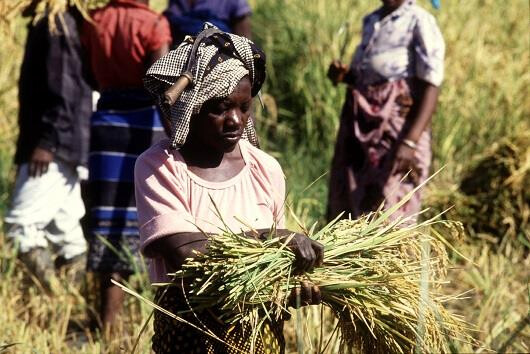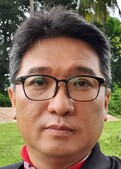
Kilosa, Morogoro Region - Paddy farmers and extension officers in Kilosa District have expressed their appreciation for the Tanzania Agricultural Research Institute (TARI)'s System of Rice Intensification (SRI) project, which aims to increase rice yields while mitigating the impacts of climate change.
The SRI project, which emphasizes efficient resource utilization, has shown promising results in reducing production costs and doubling productivity. Key features include the use of rice mat nurseries, which minimize seed requirements and water usage.
Recently, nearly 750 farmers and 16 extension officers from five irrigation schemes in Kilosa District participated in a training program on SRI principles. The training focused on practical aspects, such as preparing rice mat nurseries, and aimed to equip farmers with the knowledge and skills necessary to implement SRI techniques.
"The SRI training has provided us with valuable new skills for rice production," said Josephina Petro, a rice farmer from Chanzuru Irrigation Scheme. "We learned how to cultivate rice using fewer seeds and less water while achieving higher yields."
Godfrey Paschal, another farmer from Ilonga Irrigation Scheme, echoed these sentiments, stating, "SRI principles have shown me that it's possible to achieve high productivity even with a smaller land area, rather than relying on extensive farming with low yields."
Elina Dastan, an Agricultural Officer from Kilosa District, commended the training, highlighting the cost-effectiveness and reduced labor demands associated with the rice mat nursery method. She urged farmers to adopt SRI cultivation practices to improve their livelihoods and contribute to the nation's agricultural income.
The positive impact of SRI was further emphasized by Anna Maganga, a farmer from Mkula Irrigation Scheme in Kilombero District. She shared that before adopting SRI, she cultivated five acres of land and harvested only five to six sacks of paddy per acre. However, after implementing SRI techniques, she now cultivates only two acres and harvests an impressive 20 sacks of paddy per acre.
Dr. Atugonza Bilaro, Project Coordinator and Researcher at TARI, explained that the SRI project, implemented in collaboration with the Norwegian Institute of Bio Economy Research (NIBIO) and Swaminathan Research Foundation (MSSRF) in India, has successfully achieved its objectives in previous years in districts such as Kilombero, Chalinze, Bunda, Iringa, and Mbarali. The success in these regions has prompted the expansion of the project to Kilosa.
[Copyright (c) Global Economic Times. All Rights Reserved.]






























